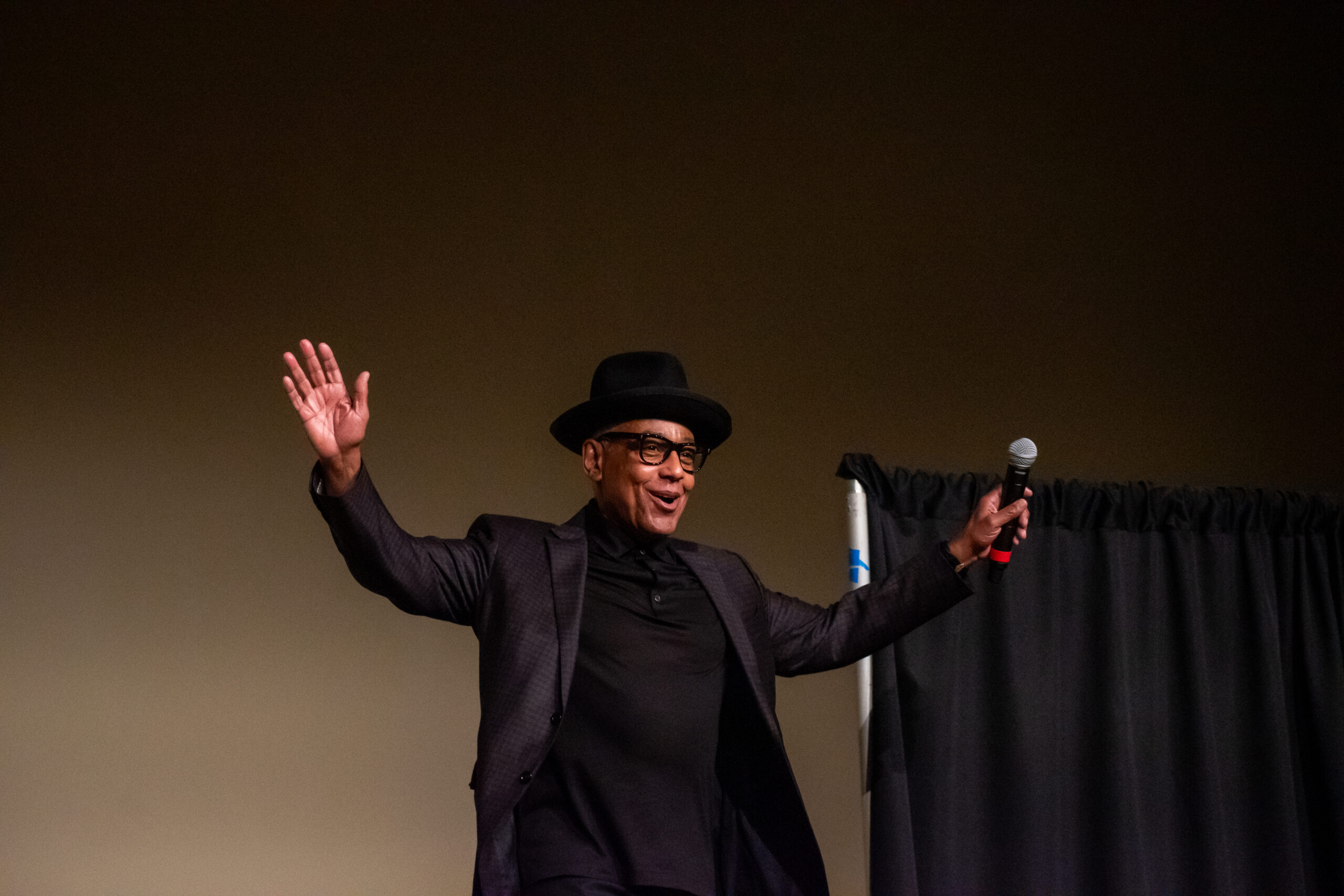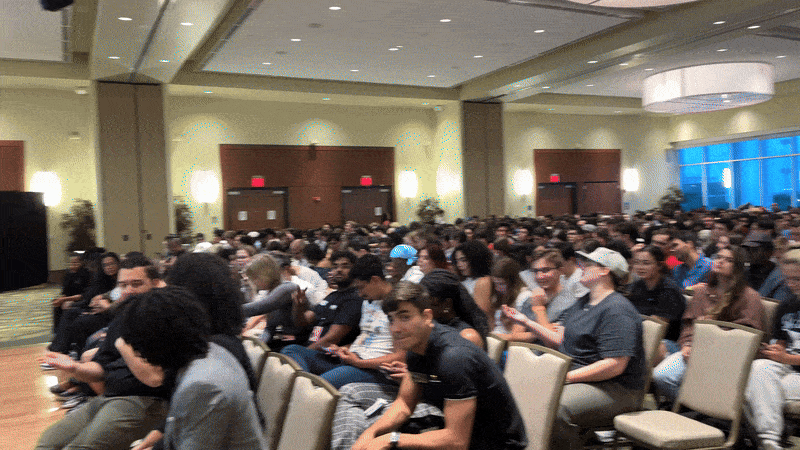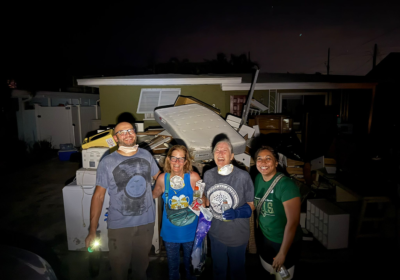Giancarlo Esposito talks about his identity, role models at USF: ‘Be who you want to be’

Giancarlo Esposito has been acting for five decades and representation in media has changed drastically since his debut on television at just seven years old.
“Back when I came up in the 60s, there weren’t many images of people who were of different ethnicities,” Esposito said. “So I took my cues from an actor, Sidney Poitier, who encompassed all of the things that I wanted to portray in my career.”
Role models like Poitier, who was the first black person to win an Academy Award, have allowed Esposito to embrace his identity in future roles.
Esposito, known best for his roles in “Breaking Bad” and “The Mandalorian,” spoke at this semester’s University Lecture Series (ULS) Tuesday night.
Related: “Breaking Bad” star Giancarlo Esposito to speak at USF
The lecture was delayed by 18 minutes due to how many people had to be seated, according to Hannah Sutherland, Center for Student Involvement (CSI) coordinator.
Every one of the 906 chairs was filled and the line to get in covered the first three floors of the Marshall Student Center (MSC).

Students walked in a single line into MSC’s Ballroom to see Esposito speak about his creative process, self-confidence and how his identity has shaped his acting career. The turnout was larger than it has been in past ULSs, including Chris Olsen’s last semester which saw around 700 attendees.
Esposito was paid $45,000 to speak at ULS, while Olsen was paid $50,000 according to Sutherland.
As the lights dimmed at 8:13 p.m., woos and cheers filled the room, with Zoe Lawrence, the Campus Activities Board (CAB) coordinator for the event, outlining the rules of the lecture. The audience groaned in disappointment hearing they couldn’t take any pictures or videos.
Five minutes later, however, the applause returned even louder as Esposito walked on to stage, remaining until he took a seat.
Esposito made his acting debut in radio commercials at just seven years old. In 1968, he starred on Broadway in “Maggie Flynn.”
Esposito’s career reached a breaking point in 2009 when he was cast as Gus Fring in the series “Breaking Bad,” a role for which he won Best Supporting Actor in a Drama Series at the 2012 Critics’ Choice.
He was nominated for an Emmy in the same category that year, and has continued to be nominated for Emmys in recent years for his role in “The Mandalorian.”
Doors opened at 7:30 p.m. for the lecture, which began with a moderated Q&A. Communications major Dywayne Hinds Jr. moderated the event.
The conversation led to a discussion of Esposito’s idols and how he has found representation in the media. He highlighted the importance of finding power within yourself, rather than in social media.
“[Social media] doesn’t allow us to look at ourselves and to be our best friend, our greatest supporter, our own heroine and hero,” Esposito said.
Esposito talked about the difference between being behind the camera and in front of it. The embodiment of his characters inspires his writing as he adjusts to new perspectives, Esposito explained.
As he impersonated a line from “The Mandalorian,” the audience erupted into cheers.
“You have something I want,” he said.

On joining “The Mandalorian,” Esposito expressed his love for the Star Wars franchise’s rich mythology and its power to reflect the human condition.
Esposito also discussed the importance of meditation and yoga in his life, a coping mechanism that calms his hyperactivity.
“I feel like if I didn’t have a meditation practice in my life, there would be nothing in my life to slow me down,” Esposito said.
The audience began to ask questions at 8:50 p.m., scanning a QR code at the beginning of the event to send Esposito queries.
The lecture ended shortly after around 9 p.m., the audience rising for a standing ovation as Esposito left the stage.
Esposito closed the lecture by standing up to share some advice and gratitude to students, his vocal pitch rising with passion as he projected his words.
“As you move and navigate this very complicated world, you should also understand that you can do whatever you want to do,” Esposito said. “You can be who you want to be. You create it, you bring it to fruition.”






